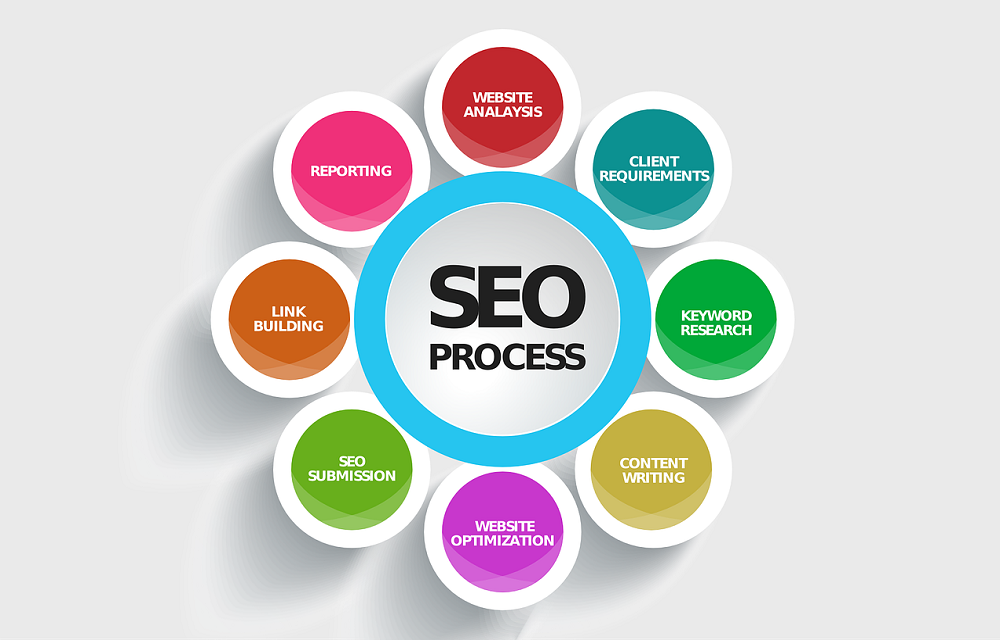As people rely on search engines such as Google for getting information, services, and products, businesses and organizations want to improve Google ranking and drive more traffic to their website.
SEO or Search Engine Optimization incorporates all the ways a website or webpage to get listed at the top of the Search Engine Results Page (SERPs) and get all the attention from viewers.
In this article, we’ll talk about the ways you may improve your Google ranking and drive more traffic to your website. So, let’s jump right in!
How To Improve Google Ranking
Here are a few things you can do to improve Google ranking.
Optimize Your Titles
The title is the first thing viewers see on the SERP and constitutes the hyperlinked text of your webpage. Titles are crucial for boosting SEO because they are what viewers skim through to see which webpage they want to visit. To improve Google ranking, your title needs to be:
- Interesting—so that it stands out from the crowd.
- Accurate—the title should reflect the content on the webpage and should not be an empty promise to lure viewers in.
- Concise—Google shows only the first 65-75 characters of your title, so it needs to be concise enough that viewers read it.
- Keywords—including keywords in your title tag helps with SEO ranking.
Optimizing Meta Descriptions
Meta descriptions, also known as SEO descriptions, are short blurbs that are placed under the title of your webpage on the SERP. Meta descriptions contain the gist of your page so that users may decide whether they want to visit the page for more information.
It is crucial that your meta descriptions contain relevant keywords and are written concisely, encompassing what the webpage is all about. A good meta description not only boosts your SEO ranking but also improves your bounce-back rate, which can negatively affect your Google ranking.
Optimize Your Images
Adding images to your webpage enhances user experience, which Google appreciates. When you add images to your webpage, Google sees it as a web page that the user would like to visit; however, there’s one caveat—Google can’t see images. Therefore, you’d have to add what’s called the ‘alt text’ or the ‘alt tag’ that basically describes the image in a few words and helps the search engine with crawling and indexing.
To improve your SEO, tag each of your images using the alt tag. Moreover, like the meta titles and descriptions, you want to include relevant keywords to the alt text as well.
Avoid Using Big Images
In today’s time, people’s patience literally hangs by a thread. This is especially seen as they’re waiting for a site to load. Ideally, your viewers want webpages to load in an instant. In fact, almost 40% of people will abandon a site if it takes more than three seconds to load.
That’s a really small window if you think about it. Usually, the culprit of slow-loading web pages is huge images. They make your website sluggish and tarnishes the user experience.
Therefore, consider using small-sized images (not more than 100 KB) for your webpage to make your webpage load faster and improve your user experience.
Internal Linking On Your Webpages
To improve Google ranking, consider internally linking your web pages. Google favors those websites that have internally-linked web pages because that allows the search engine bots to crawl more easily for navigation. Moreover, internally-linked web pages have better user experience because users are also able to navigate more easily within the website. When you offer a good user experience, viewers are likely to spend more time on your website and engage more.
Improving Dwell Time
Dwell time is the time people spend on a website or webpage. When viewers click on your website link and quickly go back, that increases your bounce rate, which is something you don’t want!
To improve your dwell time, consider including videos on your homepage. You may use your old articles or blogs and make videos out of them. You may also make engaging videos on your brand. All of these are going to improve your dwell time. However, be sure not to include a ton of videos on your homepage because that will get overwhelming for your audience.
Adding videos to your webpages means that you’re including varied content, which Google favors. By keeping a variation of the content you upload, you may see an improvement in your Google ranking.
Add Clean URLs
URLs (Uniform Resource locators) are the webpage addresses on your website. In SERPs, URLs appear just under the title. It is crucial that your URL is clean, easily readable, and evokes trust.
For instance, a URL with lots of numbers and random letters would seem spammy, confusing, and untrustworthy. A hard-to-read URL will likely get little to no clicks.
Therefore, keep your URLs clean and easy-to-read.
Keywords In URLs
Like other places, you want to include keywords in your URLs too. Google sees this as evidence that your webpage is relevant. Moreover, when you’re linking other pages through anchor text, match the URL and anchor text as much as possible so that users can click on the link with more confidence. You are able to promote trust, consistency, and coherency by including keywords in your URLs, all of which improve Google ranking.
Wrapping Up
Getting a high ranking on Google is something that all businesses and organizations want.
In this article, we have a few tips to improve Google ranking and driving more traffic to your website.
All in all, you should consider your user’s experience and think about how you can improve their stay on your site. This may include putting up small-sized pictures, including keywords in your titles, meta descriptions, and URLs, keeping URLs clean and readable, including varied content in your website, optimizing your images with an alt tag, and linking your web pages internally.
We hope you found this article helpful and that it helps you improve your SEO!




